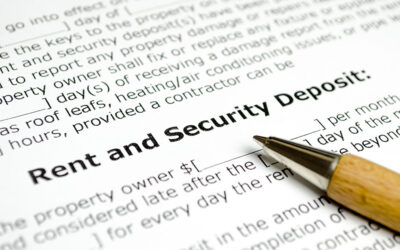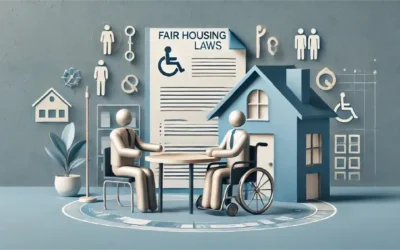Massachusetts affords tenants significant legal protection regarding the security deposit paid to a landlord at the commencement of a tenancy. Although landlords may interpret the security deposit statute as draconian, it does not change the fact that landlord’s must be judicious in precisely following the statute once they have the tenant’s security deposit on hand.
Search Landlord Tenant Law
Granting Reasonable Accommodations and/or Reasonable Modifications in the Commonwealth
As a Landlord in the Commonwealth of Massachusetts, it is important to be cognizant of Fair Housing Laws as they relate to discrimination and the implementation of reasonable accommodations and/or reasonable modifications. Fair Housing laws prohibit discrimination on grounds of disability, and also requires Landlords to allow an individual with a disability equal use and enjoyment of their Unit. Under Fair Housing Laws, an individual with a disability is one who possesses a physical or mental impairment that substantially limits one or more major life activities, who is regarded as having such an impairment, or with a record of such impairment. As such, a reasonable accommodation can often times be required in order for such a resident to use and enjoy their housing equally to a resident who does not possess such disability.
What Does The Rise In Heat Waves Mean For A Landlord’s Responsibility To A Tenant?
With the rise of global temperatures, heat waves are becoming more commonplace. According to the Environmental Protection Agency, “[h]eat waves are occurring more often than they used to in major cities across the United States. Their frequency has increased steadily, from an average of two heat waves per year during the 1960s to six per year during the 2010s and 2020s.” Not only that, but the duration of heat waves has also increased by an average of 2.5 degrees Fahrenheit. With these temperature increases in mind, what does this mean for Massachusetts landlords?
How to Deal with Tenants Vaping or Smoking Marijuana
Though smoking has always been an issue for landlords, marijuana smoke has increasingly become an issue since the recreational use of marijuana became legal in Massachusetts, dispensaries became more prevalent, and even more people started using (or openly using) cannabis. Massachusetts landlords retain the right to regulate marijuana smoking or vaping within their properties.
What Can a Landlord Charge for a Pet?
In 2021, the Massachusetts Appeals Court issued a decision clarifying when a tenant can be charged more than rent due to a pet.
Put Those Cigarettes Out – Smoke-Free Housing in Massachusetts
Smoke-free housing policies offer numerous benefits for both residents and landlords. For residents, these policies provide a smoke-free living environment, reducing their exposure to secondhand smoke and the associated health risks.











